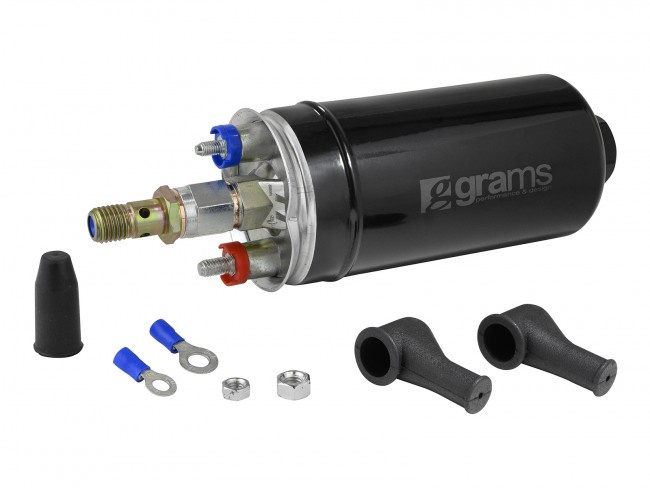In the world of automobiles, there are certain components that receive more attention than others. Engines, tires, and sleek exteriors often steal the limelight. Yet, behind the scenes, there exists a silent hero that plays a pivotal role in ensuring the efficiency and performance of every vehicle: fuel pumps. In this informative and educational blog post, we will explore the often-underappreciated world of fuel pumps. These unsung heroes silently deliver the lifeblood of your vehicle's engine, making them an indispensable part of your daily commute.
The Heart of Engine Efficiency
Fuel pumps, though small in size, serve as the heart of an engine's efficiency. Their primary function is to deliver a consistent and pressurized flow of fuel from the gas tank to the engine's combustion chambers. This ensures that the engine receives the right amount of fuel at the correct pressure, a crucial factor in optimizing power output and fuel efficiency. Without efficient fuel pumps, engines would struggle to perform at their best.
The Two Main Types of Fuel Pumps
Fuel pumps come in two main types: mechanical and electric. Mechanical fuel pumps, driven by the engine's camshaft, are commonly found in older vehicles with carbureted engines. Electric fuel pumps, on the other hand, are more prevalent in modern fuel-injected engines and are powered by electricity. Each type has its advantages, with mechanical pumps being simple and reliable, while electric pumps offer precise control and versatility.
In-Tank vs. External Fuel Pumps
The location of a fuel pump can significantly impact its performance and lifespan. In modern vehicles, you'll often find in-tank fuel pumps submerged within the gas tank itself. This placement has several advantages, including cooling and lubricating the pump as it operates. In contrast, some older vehicles and certain performance applications use external fuel pumps mounted outside the gas tank, making them more accessible for maintenance or replacement.
The Efficiency Factor
Efficiency is a critical aspect of fuel pump design. An efficient fuel pump ensures that the engine receives the right amount of fuel without wasting energy. Advances in pump technology have led to the development of high-performance, low-energy-consuming fuel pumps. These pumps contribute to improved fuel economy and reduced emissions, making them a vital component in the automotive industry's efforts to reduce its environmental footprint.
Maintaining Fuel Pumps
Like any mechanical component, fuel pumps require regular maintenance to ensure they continue to operate optimally. Common maintenance tasks include checking for leaks, inspecting the fuel filter, and cleaning or replacing the pump when necessary. Neglecting fuel pump maintenance can lead to decreased engine performance, reduced fuel efficiency, and even engine damage.
Signs of Fuel Pump Issues
Recognizing the signs of a failing fuel pump is crucial for timely repairs. Common symptoms of fuel pump problems include engine misfires, poor acceleration, stalling, and difficulty starting the vehicle. Addressing these issues promptly can prevent more significant problems and costly repairs down the road. Know more about fuel pump suppliers UAE here.
Upgrades and Aftermarket Options
For vehicle enthusiasts and those seeking improved performance, aftermarket fuel pumps are available. Upgraded fuel pumps can provide higher flow rates and increased fuel pressure, allowing for more power and better overall performance. However, it's essential to choose the right pump for your specific vehicle and needs to avoid potential issues.
The Future of Fuel Pumps
As automotive technology continues to evolve, so do fuel pump systems. Future developments may include even more efficient electric pumps, improved diagnostics, and enhanced fuel delivery systems. These advancements will not only benefit vehicle performance but also contribute to better fuel efficiency and reduced emissions.
Conclusion
In conclusion, fuel pumps may operate behind the scenes, but they are undeniably essential to the operation of every vehicle with an internal combustion engine. Their types, functions, and importance have been explored in this informative blog post. Whether you're a car enthusiast seeking upgrades or a regular driver, understanding the significance of fuel pumps can lead to better maintenance practices and a smoother, more reliable driving experience.
For quality fuel pump solutions and a wide range of fluid handling equipment, visit Ali Yaqoob Trading Co. L.L.C. Established in 1986, they are proud to be the leading supplier and distributor of fluid handling equipment in the UAE. With decades of experience, quality products, and an advanced distribution system, Ali Yaqoob Trading offers liquid, vapor, and gas handling solutions across various industries, including oil & gas, chemical, transport, marine, aviation, and more. Partner with Ali Yaqoob Trading for all your fluid handling needs and experience unparalleled service and reliability. Learn more at https://aliyaqoob.com/.


No comments yet